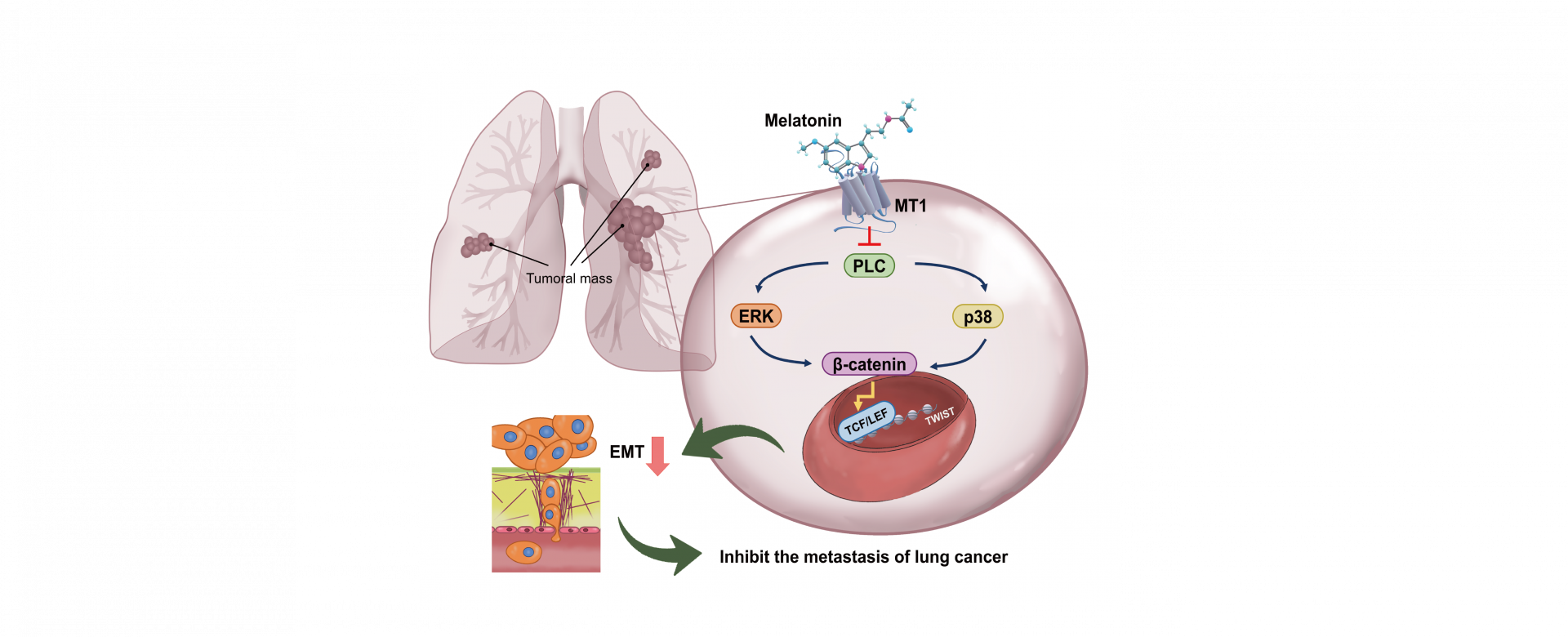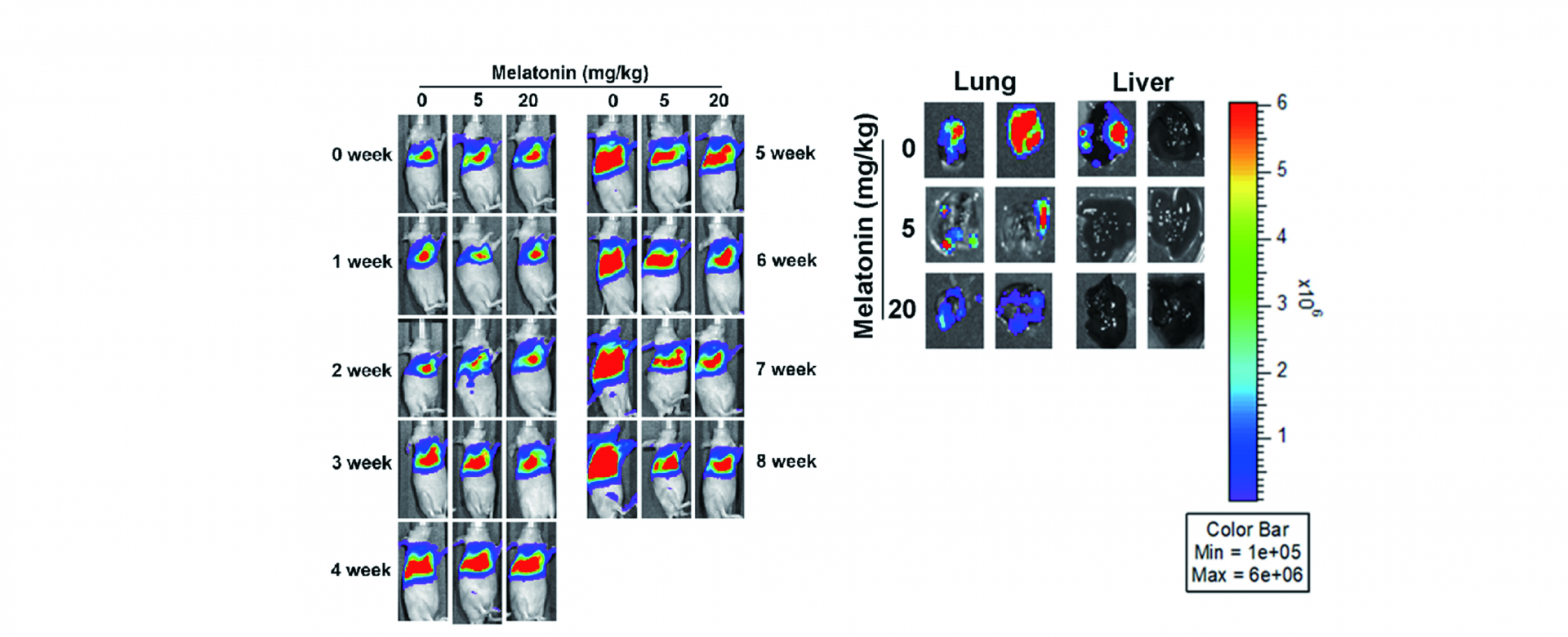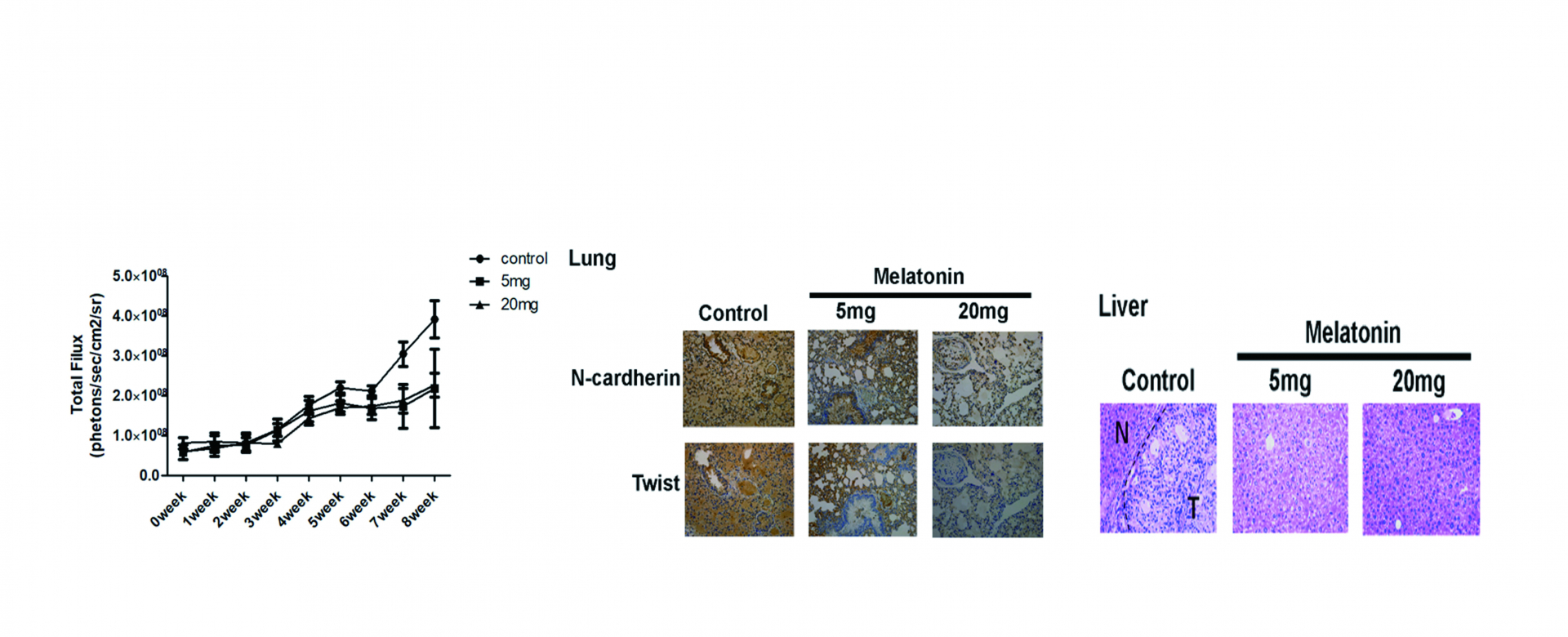Featured Scientist

Chia-Chia Chao, Ph.D.
Associate Professor
Department of Respiratory Therapy
Education & Academic Qualifications
Doctor of Philosophy National Chung Hsing University, Taichung, Taiwan (Life Sciences)
Master of Philosophy China Medical University, Taichung, Taiwan (Basic Medical Science)
Bachelor Taipei Medical University, Taipei, Taiwan (Respiratory Therapy)
Research Interests
Respiratory Therapy、Cell Biology、Lung Cancer、Lung Fibrosis、ardiorespiratory Physiology
Melatonin suppresses lung cancer metastasis by inhibition of epithelial mesenchymal transition through targeting to Twist
Melatonin is a hormone secreted by pineal gland which has various capacities. For example: anti-tumor, anti-aging, anti-inflammatory, and antioxidant effects. A research team lead by Dr. Chia-Chia Chao at Department of Respiratory Therapy, has found melatonin can prevent lung cancer growth and metastasis in in vitro and in vivo studies. Dr. Chao’s team also found that the anti-metastatic effects of melatonin was mediated by targeting epithelial-mesenchymal transition (EMT). The current finding could develop melatonin as therapeutic strategy against lung cancer in the future.
The epithelial-mesenchymal transition (EMT) phenotype, whereby mature epithelial cells undergo phenotype transition and differentiate into motile, invasive cells, has been indicated in tumor metastasis. The melatonin hormone secreted by the pineal gland has an antioxidant effect and protects cells against carcinogenic substances that reduce tumor progression. However, the effects of melatonin in EMT and lung cancer metastasis are largely unknown. We found that melatonin downregulated EMT by inhibiting Twist/Twist1 (twist family bHLH transcription factor 1) expression. This effect was mediated by MT1 receptor, PLC, p38/ERK and β-catenin signaling cascades. Twist expression was positively correlated with tumor stage and negatively correlated with MT1 expression in lung cancer specimens. Furthermore, melatonin inhibited EMT marker expression and lung cancer metastasis to liver in vivo. Finally, melatonin shows promise in the treatment of lung cancer metastasis and deserves further study.
https://doi.org/10.1042/CS20180945
167 views


